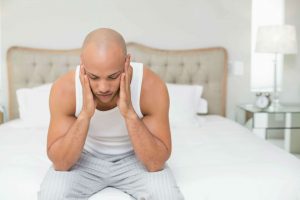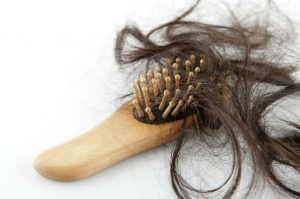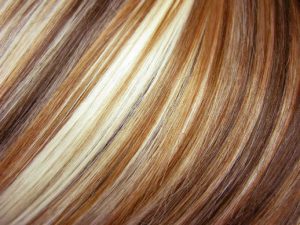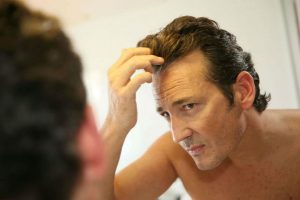
The truth is that hair loss is an incredibly complicated process. It can be influenced by a huge number of biological processes. There are literally hundreds of genetic issues that are involved in hair loss, and they can be activated by age, stress, illnesses – the list goes on.
Knowledge is power. Understanding the cause of your hair loss will give you the tools to find the right treatment. While the best way to determine the cause of your hair loss is through an appointment with one of our expert trichologists, the most common type of hair loss suffered by people in their 20s is androgenetic alopecia (or pattern balding). It is the single most common cause of hair loss and balding in men and women, affecting some 50% of men by the time they reach their 50s.
Why Am I Losing My Hair?
Androgenetic alopecia is primarily caused by the presence of a hormone named dihydrotestosterone (DHT) in the body, which is produced as naturally occurring testosterone breaks down.
Over the course of your life, your genes and environment can change the levels of DHT present in your body. While DHT is a necessary and healthy hormone for male sexual growth, it also has the nasty side effect of binding to hair follicles. This causes the hair follicles to prematurely shrivel up, which prevents longer, healthy ‘terminal’ hairs from appearing because the follicles can no longer support them.
What Are The Symptoms?
Some of the key symptoms include:
- Thinning hair on the forehead
- Overall receding hairline
- Prominent widow’s peak
- Gradual loss of hair around the crown
- Enlarged bald spot on the scalp
If your symptoms tend to vary from those listed, such as a rapid onset hair loss across the entire body, or as a result of inflammation, there could be something else causing your hair loss. Pattern hair loss can occur at any time and is a gradual process.
How Can I Treat My Early Onset Hair Loss?
Though pattern hair loss can be irreversible, there are effective treatments out there:
- Hair transplants are a clinically safe and established procedure that can completely restore the appearance and function of hair.
- Strand-by-Strand HairGRAFT: We offer a revolutionary surgical hair transplant option that matches each strand to an existing strand. This ensures your hair looks natural from every angle.
- Hairfusion: We also offer a non-surgical alternative to our Strand-by-Strand® HairGRAFT treatment. This treatment does require maintenance, but you can restore your hair with no surgery, scarring or redness.
- Female Hairfusion Non Surgical Hair Replacement: Hair loss and thinning have devastating effects on women. We have developed a Hairfusion technique, specifically for females so that they can take control of their appearance.
- Advanced Singular Hair Grafting®: By combining surgical and non-surgical techniques, we can replace your hairline and attack hair loss where it usually begins. The transplant looks entirely natural, and you don’t have to wait for up to six months for it to grow, as you do with other techniques.
- Minoxidil improves the blood flow to the crown, helping hair follicles to naturally regenerate.
To get to the root of your hair loss, it is important to find out precisely what is causing it. Contact Advanced Hair Studio today for a hair check – it could be the key to saving your hair.
Contact Advanced Hair Studio Australia For Hair Loss Solutions
Over 1 million people around the world have had their lives changed by our treatments. We know they work because we have seen it first hand, and we have hundreds of thousands of happy customers who are prepared to back our expertise.
Restore your confidence today:
- Call Advanced Hair Studio on 1800 800 500
- Book A Consultation With A Hairloss Specialist



